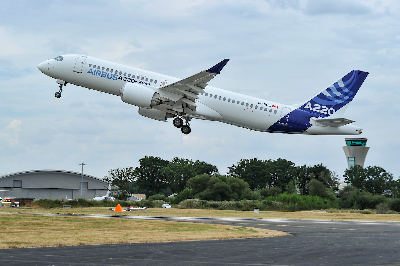
The Government’s Aviation Strategy Green Paper was published yesterday, under the name of ‘Aviation 2050’. This builds on the previous strategy documents, ‘Next Steps Towards an Aviation Strategy’ from April 2018, and the ‘Beyond the Horizon’ call for evidence from July 2017.
Green Paper consultation
The Green Paper sets out a wide range of policy proposals to pursue. The consultation will last until 11 April, and will consist of industry engagement with the DfT, including meetings, events, focus groups and workshops, as well as responding directly to the consultation. The Green Paper seeks to answer the below general questions, with specific questions besides for each chapter:
- How could the policy proposals be improved in impact & effectiveness?
- How should the proposals be prioritised, based on both importance and urgency?
- Is there any additional relevant evidence that should be taken into account?
- What implementation issues need to be addressed and how should they be approached?
- What financial and regulatory burdens need to be managed and how?
- Are there any policy options or approaches which are missing & should be included?
- Looking ahead to 2020, are there any other long-term challenges that need addressed?
Policy proposals
There are a great many policy proposals spread out over all the seven chapters. Some of the key focuses for Aerospace are listed below:
- Continued support from Government for the Women in Aviation and Aerospace Charter.
- Working to ensure industry expertise and knowledge is made available at the International Civil Aviation Organisation.
- Lead global action to keep aviation safe from potential threats.
- Considering possible requirements in aircraft design for disabled passengers.
- Establishing a new Aviation Exports Board with the British Aviation Group.
- Work with the Aerospace Growth Partnership Skills Working Group on addressing STEM skills shortages.
- Ensure the Civil Aviation Authority has the resources to be an agile regulator of new technologies and business models, including electric and autonomous aircraft.
- Supporting the Aerospace Sector Deal (launched on the 6 December) to prepare industry for a shift in technologies, such as digital and electric, including through the Future Flight Challenge given funding by the Industrial Strategy Grand Challenge Fund.
A number of ADS activities and allied bodies are referenced, including the British Aviation Group and Aerospace Growth Partnership. The Aerospace Sector Deal, Women in Aviation and Aerospace Charter, and Future Flight Challenge are also included as actions taken by other arms of Government that the DfT is supporting as part of the Aviation Strategy.
Other actions set out by Government are very welcome too. For example, working to ensure the CAA is capable of the flexible and forward-thinking regulation required for the upcoming innovations in aerospace, along with working to ensure industry expertise is at the forefront of ICAO work are both important concerns for ADS members.
Overall, this is a strong step in the right direction, and ADS looks forward to continuing to engage with Government on behalf of our industries over the course of the consultation period.





